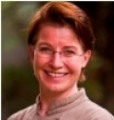May 25, 2017
Gender, Girls & Women, Violence Against Women
 By: Lykke E. Andersen*
By: Lykke E. Andersen*
Stories about sexual violence against girls and women are common in the Bolivian news, but recently the stories have escalated to such hideous levels that the Vice-President of Bolivia has announced a referendum on whether to re-institute life-in-prison and death penalty in Bolivia (1).
For example, last Sunday, one of the guards of the “Defence of Children and Adolescents” facility in La Paz was caught in fraganti sexually violation two under-age girls who had come to the facility because they had suffered abuse (1).
The day before, a step-father and step-grandfather were jailed in Cochabamba for sexually violating and killing a baby girl, who had not even turned two (2).
A couple of weeks before, the President of the Municipal Council of Tapacarí (Cochabamba) was physically and sexually assaulting one of the female members of the Council, and a friend of the woman was trying to stop the assault when the Mayor arrived. But instead of helping the two women, the Mayor exclaimed “Why haven’t you raped these horny whores yet? Rape them and throw them in the river.” (3)
Read More »
May 3, 2016
Education, Ethics, Health, Solutions, Urban Development

By: Lykke E. Andersen*
Bolivia has recently changed from a low income country to a lower-middle income country, and with that increase in incomes the disease burden has also changed. In 1990, Bolivia’s disease burden was dominated by infectious diseases and maternal health problems (pink group), which is typical of poor countries. By 2013, however, the blue group, which encompasses non-communicable diseases (such as cardiovascular diseases, cancer, diabetes and mental disorders) has become dominant, as it typically is in richer countries (see Figure 1). Read More »
June 5, 2015
Conservation, Environmental Economics, Ethics, Policy, Welfare Economics
 By Susana del Granado *
By Susana del Granado *
“A vision comes not from the intellect or the mind but from the heart, from the soul”
Donella Meadows
Today, June 5th , we celebrate World Environment Day and, as a celebration, the United Nations Environmental Program has launched a campaign and a contest about “sharing your dream[1]” to move people to imagine a sustainable future and to trigger discussion on the objectives for sustainable development[2].
A vision is a desirable future and, by definition, it is a positive image of what you want to see in the future. Donella Meadows, an environmental scientist and leading author of “The Limits to Growth”, while presenting at an ecological economics conference, inspired and requested her audience to envision a sustainable future. To develop that vision, she asked them to get comfortable, to close their eyes, to take a deep breath, and to dream:[3] Read More »
March 19, 2015
Family Planning, Gender, Girls & Women, Policy, Violence Against Women

By: Lykke E. Andersen*
Fertility rates have been going down all over the World much faster than most people realize. Fertility rates in Bolivia, for example, have come down from 6.5 babies per woman in 1971 to 3.2 in 2013, which is typical of developing countries (1).
This evolution made me suspect that the problem of high teenage pregnancy in Bolivia perhaps has already solved itself, and that I don’t really have to worry about becoming a grandmother anytime soon.
However, a quick look at the latest Bolivian population census (2012) indicates that teenage pregnancy is still very common. Seven percent of all 15 year olds already have a child, and this share increases to a whopping 49 percent for the 20 year olds, many of which already have 3 children (see Table 1).
Read More »
August 29, 2013
Human Rights Abuses, Internal Displacement, Violence, Violence Against Women, War & Conflict
 By Paula Fynboh
By Paula Fynboh
There’s a cemetery near Montgomery, Minnesota (USA) where my parents will be buried. It’s the same cemetery where my grandparents were buried. And it is the same place where my great-grandparents found their final resting place. What does this have to do with displacement? It offers me a physical connection to my roots, something many internally displaced people in many countries do not have.
I recently sat down with Maria Isabelle, one of the participants of the Bogota Wage Subsidy Project (BWSP), to hear her story. The BWSP is a start-up organization working with women displaced by conflict in Colombia to build personal equity and transition from informal to formal employment. Read More »
July 3, 2013
Ethics, Psychology

Leerlo en español AQUI 
Any economist who thinks people are rational, should read the books “Predictably Irrational: The Hidden Forces That Shape Our Decisions” and “The (Honest) Truth About Dishonesty: How We Lie to Everyone – Especially Ourselves” written by Dan Ariely, professor at Duke University. He explores the fertile intersection between psychology and economics to understand why we often make less than rational decisions.
While he has worked on many interesting irrational behaviors–like engaging in risky sex or paying way too much for a good or service–this article is about dishonesty, and what we can do about it.
According to Ariely, we all struggle with two conflicting motivations: On the one hand, we want to reap the easy benefits from cheating and get as much money, glory and satisfaction as possible as quickly as possible; but on the other hand, we want to be able to perceive ourselves as honest, honorable people.
Ariely has made numerous laboratory experiments to understand how that internal conflict plays out in most people. He summarized that work in a Wall Street Journal article, and I will summarize it even further here:
Read More »
June 20, 2013
Corporate Social Responsibility, Development, Guest Roast, Human Rights Abuses, Macroeconomics, Mining, Policy, Politics, Sustainability
 By Ricardo Morel Berendson
By Ricardo Morel Berendson
The mining boom in Peru during the 1990s attracted private investment that led to current economic growth. However, this did not translate into sustainable development of the mining activities. The government has been absent in remote mining areas and, thus, corporations have been targeted as being responsible for attending to local communities’ demands and providing assistance. As a result, mining companies developed only short-term and interest-driven ‘socially responsible’ plans to continue operating. Not surprisingly, social conflict has been especially prevalent in the field of extractive industries. A shift from an extractive model to a more inclusive, participatory one—where governments and private companies work together with local communities—could create a virtuous circle of sustainable social development.
Read More »
June 18, 2013
Girls & Women, Health, Human Rights, Human Rights Abuses, Infographics, Policy, Statistics, Violence Against Women
 In a March 2013 report, the Pan American Health Organisation (PAHO), in collaboration with the Centers for Disease Control and Prevention, presented comparative cross-country data on the state of violence against women in 12 nations across Latin America and the Caribbean. As the subsequent infographic by Hispanically Speaking News illustrates, Bolivia topped the chart by some margin.
In a March 2013 report, the Pan American Health Organisation (PAHO), in collaboration with the Centers for Disease Control and Prevention, presented comparative cross-country data on the state of violence against women in 12 nations across Latin America and the Caribbean. As the subsequent infographic by Hispanically Speaking News illustrates, Bolivia topped the chart by some margin.
When asked about their experiences over the past 12 months, one in five Bolivian women claimed to have been victims of physical abuse, with 53.3 percent of women reporting physical violence by a partner.
Intimate partner violence in Bolivia is 35 percent larger than the next highest abuse rate of 38.6 percent for both Colombia and Peru. At 17 percent, Dominican Republic appear to have the lowest, albeit still unacceptably high, level of partner violence against women. Read More »
January 29, 2013
Consumerism, Development, Ethics, Happiness, HPI, Inequality, Measuring Development, Poverty, Poverty and Inequality, Psychology, Social Justice

As shown in our post “Is there more to life than money? Mapping happiness of people and planet”, several attempts have been made to measure happiness and wellbeing globally. However, consensus proved elusive since different studies brought very diverse results. That is because happiness is a very hard thing to define – if it had a clear, objective definition, our lives would be a lot easier, wouldn’t they? Still, there are several working definitions, and most of them can be grouped in either of the following two categories. On one hand, there is a happiness that relates to one’s satisfaction with their lives. That often involves a feeling of having achieved one’s goals in life, having an option not to work in an extremely degrading job, having good relationships, etc. On the other hand, there is a more emotional happiness. That is much more momentary, it is the “state of mind of feeling good”. According to the latter definition, one’s happiness would be measured by how often, how intensely, and for how long one “feels good”. Read More »
January 10, 2013
Consumerism, Culture, Ethics, Policy, Psychology, Social Justice
 Two days before Christmas I spent an hour watching a beggar. Would you like to hazard a guess at how many people gave to her? She was an old woman. She looked ancient but was probably only 50 or 60 years old. She was shriveled and doubled over to the extent that she took up little more than the space of an average TV set on one of La Paz’s busiest pavements. And her spindly wrist stuck out of this buddle desperately imploring passers-by to spare a coin or two. But no, hearts didn’t jump. Even in the peak of their Christmas generosity people were not going to jolted into giving by this pitiful sight and, in the end, out of the hundreds that went past, just six people stopped to drop a coin into her hand.
Two days before Christmas I spent an hour watching a beggar. Would you like to hazard a guess at how many people gave to her? She was an old woman. She looked ancient but was probably only 50 or 60 years old. She was shriveled and doubled over to the extent that she took up little more than the space of an average TV set on one of La Paz’s busiest pavements. And her spindly wrist stuck out of this buddle desperately imploring passers-by to spare a coin or two. But no, hearts didn’t jump. Even in the peak of their Christmas generosity people were not going to jolted into giving by this pitiful sight and, in the end, out of the hundreds that went past, just six people stopped to drop a coin into her hand.
Read More »
 Development Roast Giving international development a proper roasting
Development Roast Giving international development a proper roasting




 By Paula Fynboh
By Paula Fynboh



